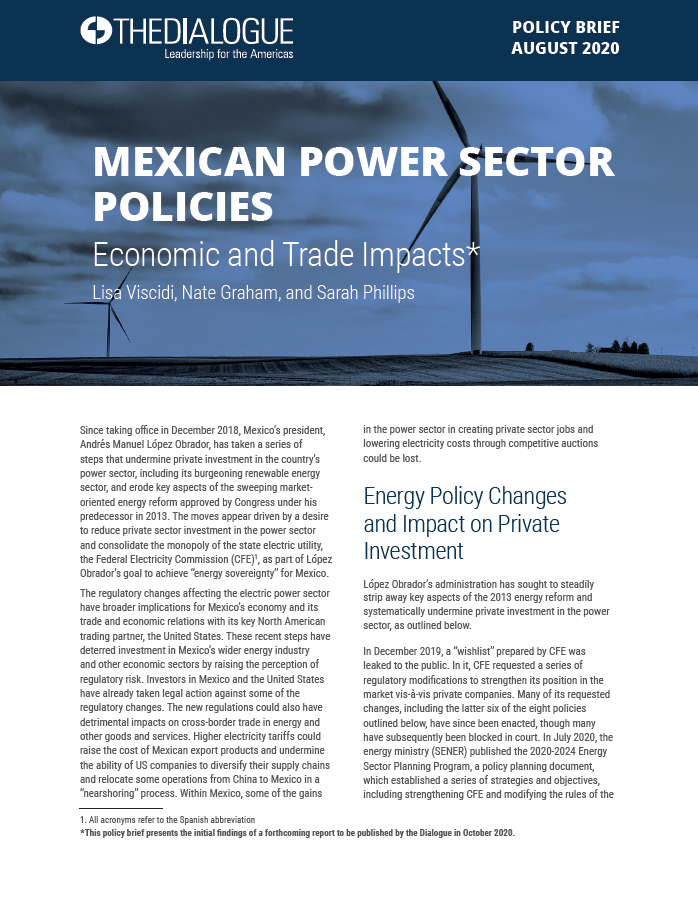Mexico: How Far Have its Institutions Really Come?
The question remains if Mexico has achieved a degree of institutional development consistent with its participation in those organizations.
Note: This policy brief presented the initial findings of a report published by the Dialogue in October 2020.
Since taking office in December 2018, Mexico’s president, Andrés Manuel López Obrador, has introduced a series of measures that undermine private investment in the country’s power sector, including its burgeoning renewable energy sector, and erode key aspects of the sweeping market-oriented energy reform approved by Congress under his predecessor in 2013. Some of the regulatory and policy changes have already been implemented while others have been challenged in court and could be overturned.
These measures have broad implications for Mexico’s economy and trade with its key trading partner, the United States, according to a new policy brief by the Inter-American Dialogue. Within Mexico, some of the gains in creating private sector jobs in the power sector and lowering electricity costs through competitive auctions and other mechanisms allowing private investment could be lost. The new measures could also have detrimental impacts on cross-border trade. Higher electricity tariffs could raise the cost of Mexico’s energy-intensive export products and undermine the ability of US companies to diversify their supply chains and relocate some operations to Mexico.
The question remains if Mexico has achieved a degree of institutional development consistent with its participation in those organizations.
Focusing on transnational crime is a top priority of the Obama administration’s policy in Latin America.
As global temperatures continue to rise with the global community stalled on any way to stop them, countries must prepare to adapt to increasingly volatile environmental conditions.
